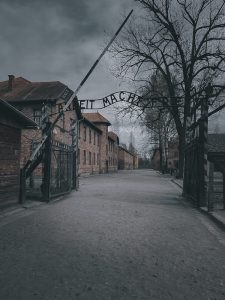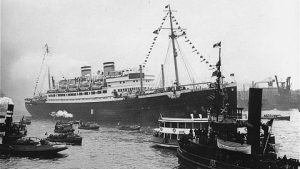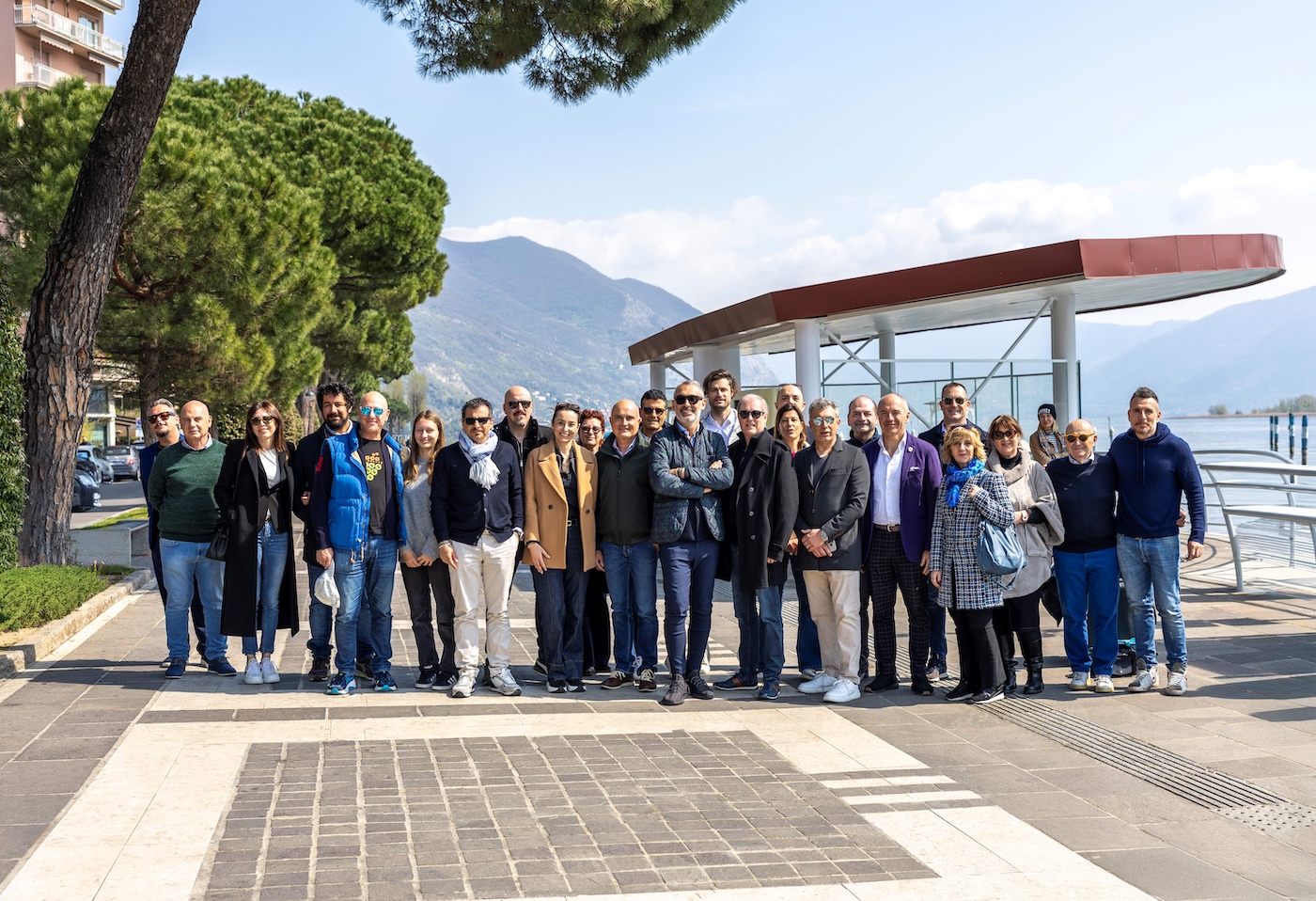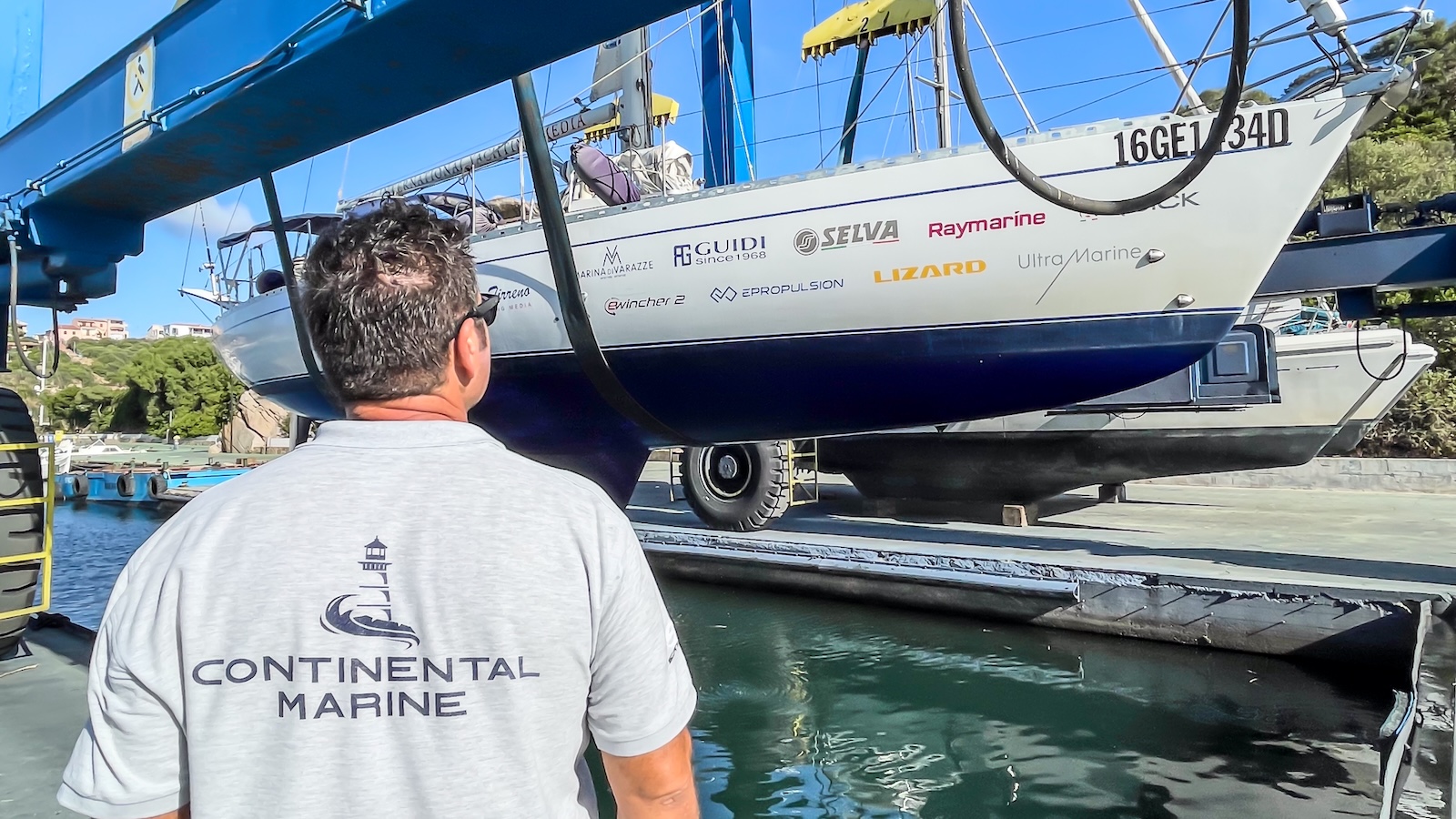The odyssey of the St. Louis, the liner of salvation – Jan. 27, Holocaust Remembrance Day
It was 
They saw their parents’ blood mixed with the shattered glass of Synagogues, their stores, their streets. They could hear the screams of their children being slaughtered by the SS, they breathed the smell of burning and gunpowder, they now sensed the terror of being Jews.
Only a few days earlier they had obtained a visa from the Reich to leave the country. A tourist visa that cost an exorbitant amount of money.
The St. Louis and her captain Gustav Schröder would take them to those countries that had not yet passed the Nuremberg racial laws. The liner of salvation: so it was renamed.
At 8 p.m. the St. Louis set sail, heading for Havana.
Navigation proceeded smoothly, in the ballroom where Captain Schröder, had the giant image of Hitler removed, people celebrated religious rites trying to forget the anguish of an opaque future.
On May 27 the ship landed in Cuba but hopes of landing were dashed by unnecessary bureaucracies, rampant corruption and too many prejudices. The tourist visa was not enough, a refugee visa was needed: the cost was $500. Only twenty-nine could pay that amount and disembarked.
The St. Louis was forced to sail again. New route: the United States. Arrived in America yet another refusal to disembark: “we cannot consider them tourists and we have already reached the planned quota of immigrants” were the words of the diplomacy in President Roosevelt’s employ despite a very tight campaign in the New Yorkers Times in favour of disembarking the passengers. Some managed to disembark by paying bribes.
Captain Schröder collected yet another refusal and set sail on June 6, aiming north: Canada. But he had no luck; even Canada did not consider those tourist visas valid. Here, too, behind more or less lawful disbursements of money, someone managed to get off.
Some 
A message sent by the head of the Jewish Joint Distribution Committe in Europe turned the tables: “I am happy to inform you that the governments of Belgium, Holland, France and England have made themselves available to receive Jews on board.”
On June 17, the ship St. Louis made its triumphal entry into the port of Antwerp. Most of the passengers disembarked and remained in Belgium, another part continued on to France, and the rest embarked again to reach England.
Happiness was now within reach except that shortly thereafter, on May 10, 1940, Germany would begin its invasion of Belgium, the Netherlands, Luxembourg and France.
For the Salvation Ship passengers, and not only for them, it was the beginning of the Holocaust.
In 1974 a book entitled “The Voyage of the Damned” by Max Morgan Witts and Gordon Thomas, a U.S. psychologist, was published with the first estimates of survivors, after landing in Antwerp, of the Holocaust. They were 709 in number.
Subsequent research by the United States Holocaust Memorial Museum shows other numbers. “Of the 620 St. Louis passengers who returned to Europe, we established that 83 were able to emigrate before Germany invaded Western Europe.
The 254 passengers received in Belgium, France and the Netherlands died after the invasion in the Auschwitz and Sobibór death camps. The others died in internment camps or in an attempt to hide or evade the Nazis,” writes Sarah Olgive, author with Scott Miller of the research.
Nine hundred thirty-six Jews. Nine hundred thirty-six people. Nine hundred thirty-six victims of hatred-not just Nazi hatred.
After the war, Captain Gustav Schroder was awarded the Order of Merit of the Federal Republic of Germany and in 1993 Righteous Among the Nations by Yad Vashem in Jerusalem.

























